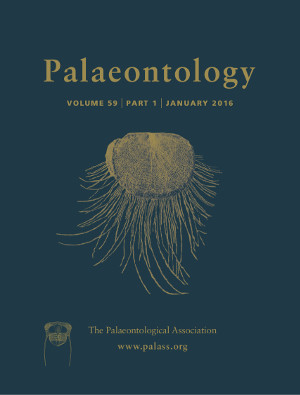Reg. Charity No. 1168330

Romer's Gap, the interval following the end-Devonian extinction event, has been described as a post-extinction trough for vertebrates. It is a time roughly equivalent to the Tournaisian stage of the early Carboniferous and has been characterized by a lull in diversity of survivors. Lungfish typified this description. One species was known from one locality. Recently, a diverse collection of lungfish tooth plates, representing seven new forms, was recovered from new Tournaisian vertebrate localities in northern Britain. They display a range of previously unknown morphologies, with tooth shape and wear patterns not seen in other post-Devonian forms. A comparison of tooth ridge number and tooth ridge angle in lungfishes from the Famennian, Tournaisian and Visean reveals marked differences between late Devonian and early Carboniferous taxa. The most common tooth plate shape in the Famennian is absent from our sample of Tournaisian taxa. Two completely new shapes have evolved, one with a relatively low tooth ridge angle, no greater than 40°, in which most of the tooth ridges are essentially parallel, and the other with a much higher tooth ridge angle of up to 180° where the tooth ridges are highly divergent. This high level of morphological diversity over a narrow time period suggests that, following the end-Devonian extinction, gaps in ecospace left by the extinction of major groups of fishes were exploited by a previously unrecorded radiation of lungfishes. Whilst taxonomic diversity of lungfishes declined following the end-Devonian extinction, recovery and diversification among tooth-plated forms was rapid, and morphological disparity among these forms subsequently increased. Contrary to previous assumptions, morphological disparity among lungfish did not decline until much later in the Carboniferous.